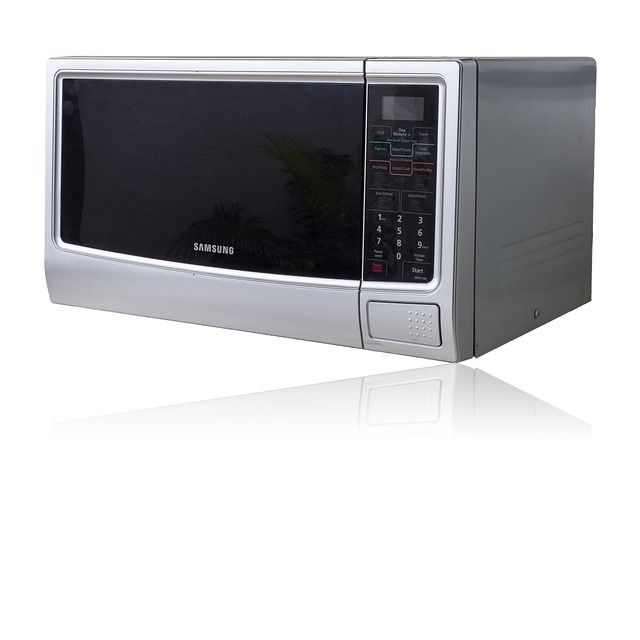GFCI (Ground Fault Circuit Interrupter) outlets are an essential safety feature in modern electrical systems.
They are designed to protect people from electric shocks by quickly shutting off power when a ground fault is detected.
However, there is often confusion about whether certain appliances, such as microwaves, can be safely operated on GFCI outlets.
Microwaves can be used with GFCI outlets without any inherent issues or restrictions. GFCI outlets are designed to provide protection against electric shocks and are compatible with various electrical appliances, including microwaves.
In this article, we will explore the compatibility of microwaves with GFCI outlets and provide useful information to help you make an informed decision.
Understanding GFCI Outlets
GFCI outlets are widely used in kitchens, bathrooms, garages, and other areas where electrical appliances are commonly used.
They work by continuously monitoring the flow of electrical current and instantly tripping the circuit if an imbalance is detected. This rapid response helps prevent electrical shocks and potential hazards.
The benefits of using GFCI outlets extend beyond safety. They also provide protection against electrical fires caused by ground faults and offer a higher level of electrical safety for both residential and commercial applications.
Using a Microwave with a GFCI Outlet
Microwave ovens are popular kitchen appliances used for cooking, heating, and defrosting food. When it comes to using a microwave with a GFCI outlet, the answer is generally yes, it can be done.
Microwaves are compatible with GFCI outlets, and there are no specific restrictions preventing their use together.
However, there are a few factors to consider. Microwaves draw a significant amount of power, which can lead to temporary electrical surges when they start or when their power levels change.
These surges may cause a GFCI outlet to trip. The sensitivity of GFCI outlets can vary, and some models may be more prone to tripping than others.
Read also my article: Is Your Microwave at Risk? Understanding Overvoltage Damage.
Potential Issues and Solutions
If you experience GFCI tripping while using a microwave, there are several potential reasons for this issue.
One common cause is the sensitivity of the GFCI outlet itself. In such cases, replacing the GFCI outlet with a higher amperage or more robust model can help prevent unnecessary tripping.
Another possible cause is a combination of appliances connected to the same circuit. If multiple appliances drawing high power are connected to a single circuit protected by a GFCI outlet, the cumulative power demand may exceed the outlet’s capacity, leading to tripping.
Distributing the appliances across different circuits or using dedicated circuits for high-power appliances can help alleviate this issue.
Safety Precautions
When using a microwave with a GFCI outlet, it’s essential to follow standard electrical safety practices. Here are a few precautions to keep in mind:
- Ensure that the microwave is in good working condition and properly grounded.
- Avoid using extension cords or power strips with a microwave as they can increase the risk of electrical hazards.
- Regularly inspect the GFCI outlet for any signs of damage or malfunction.
- Do not attempt to modify or tamper with the GFCI outlet or its wiring unless you are a qualified electrician.
By adhering to these safety precautions, you can minimize the risk of electrical accidents and ensure the safe operation of your microwave on a GFCI outlet.
Alternatives to GFCI Outlets for Microwaves
In certain situations, you may consider alternatives to using a GFCI outlet for your microwave. One option is to use a dedicated circuit solely for the microwave.
This approach eliminates the possibility of other appliances causing a GFCI trip and ensures a stable power supply for the microwave.
Another alternative is to install a non-GFCI outlet specifically for the microwave. However, it’s important to note that this should only be done if the electrical code permits it and if the kitchen or the designated area already has GFCI protection from other outlets.
Before making any modifications or choosing an alternative solution, it is advisable to consult a qualified electrician to ensure compliance with local electrical codes and to maintain safety standards.
Conclusion
In conclusion, you can safely run a microwave on a GFCI outlet, but there may be instances where the sensitivity of the outlet or the cumulative power demand of multiple appliances can cause tripping.
By understanding the potential issues, following safety precautions, and considering alternatives if needed, you can enjoy the convenience of using a microwave while maintaining electrical safety in your home or workspace.
Want to learn more about electricity? Check my YouTube channel!
Are You An Electrical Engineer or Electrician?
Install my Free On Google Play Now! It’s 100% Free
The staff I recommend (Amazon Affiliate Links to products I believe are high quality):
- Economy 120 Volt/60Hz AC Power Source – Step-Down Voltage & Frequency Converters 1800W
- UNI-T Digital Multimeter Tester UT139C
- 50-Amp Extension Cord for RV “100ft”
- Voltage Stabilizer 110/220v
- Hair Dryer “best selling“
- TOSHIBA EM131A5C-BS Countertop Microwave Ovens
Disclaimer: This contains affiliate links to Amazon products. I may earn a commission for purchases made through these links.

